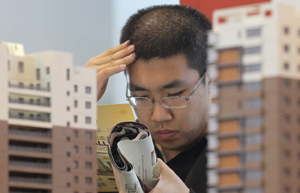Opinion
Experts: Reform of IMF only just beginning
By Wang Bo (China Daily)
Updated: 2010-11-11 16:01
 |
Large Medium Small |
BEIJING - The shift in voting power toward emerging markets in the International Monetary Fund (IMF) is just the start of a wide-ranging reform of the institution, officials and economists said.
The IMF on Nov 5 agreed to shift more than 6 percent of its voting rights to dynamic developing countries, a move that Dominique Strauss-Kahn, the fund's managing director, called the "most fundamental governance overhaul" in its 65-year history.
Under the agreement, China will become the third-strongest voice in the fund with a quota share of 6.4 percent following the 17.4 percent for the United States and Japan's 6.5 percent. Brazil, Russia and India also join the fund's top 10 shareholders while European countries' influence weakened.
China and other emerging economies welcomed the IMF's decision, but Sun Lijian, a finance professor at Fudan University in Shanghai, called for the fund to play a bigger role in monitoring major economy's policies.
The issue is likely to top the agenda of the G20 Seoul summit, to be held between Nov 11 and 12, after the US Federal Reserve Board (Fed)'s plan to inject $600 billion into the economy drew a global backlash.
"The urgent need is to strengthen the supervision of the monetary policy of major countries and stabilize their currencies, and obviously the IMF is better positioned to play a key role on the issue," Sun said.
"While the global economic recovery is still fragile, it is important to maintain investors' confidence in currencies and avoid forming asset bubbles," Sun said.
Leaders of emerging economies and some European countries will push at the Seoul summit for a plan to curb unilateral monetary policy decisions that could harm the global economic recovery, but are unlikely to reach any consensus on the issue, Sun said.
Cui Tiankai, China's vice-foreign minister and one of the nation's major G20 negotiators, said the quota transfer was far from the end of the IMF reform and he looked forward to more changes at the institution.
Many countries agree that the international monetary system is in further need of reform. Nicolas Sarkozy, president of France, the next chair of the G20, is seeking global support on reforming the international monetary system to reduce excessive volatility in exchange rates and commodities.
 Real estate sector shows signs of cooling
Real estate sector shows signs of cooling


